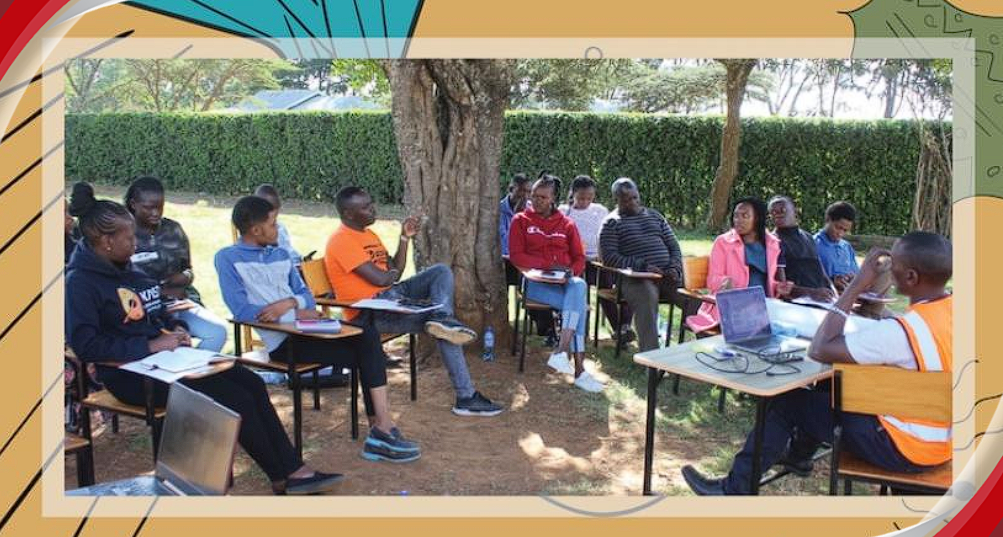Articles
Does AI herald brave new world?
-
1 year ago
Whether one sees it as a threat to humanity, or the initiator of a wonderful new world, artificial intelligence (AI) is here to stay. Business will never be the same again.
When ChatGPT was launched on 30 November 2022, it seemed as though a major inflection point had been reached. The app had gained 100 million active users by January 2023, a growth spurt that is remarkable even in an industry renowned for growth; TikTok took nine months to reach that same number.
ChatGPT and similar apps have seized the public imagination because they seem to bring us very close to the future sketched in science fiction, from comic books, to movies like 2001: A Space Odyssey and Her.
Even so, noted visionary Elon Musk has expressed disquiet about the possibility of an "unbenign" outcome for humanity.
There's no doubt that, at the very least, AI is emerging as a powerful disruptor, one that will inevitably change society, including business, profoundly. Whether it is for the better or not depends on how we manage its development, and to do that we first need to understand what it is.
Broadly speaking, AI can be defined as an "area of computer science that makes machines seem like they have human intelligence". As always, "seem" is the crucial word − there is a long way to go before computers actually approach genuine human intelligence.
AI is emerging as a powerful disruptor, one that will inevitably change society, including business, profoundly.
AI is not a monolith (although a black one might be involved). Broadly speaking, there are two types of AI: "narrow" AI, artificial narrow intelligence or ANI, and "general" AI, artificial general intelligence or AGI.
ANI, or "weak" AI, uses a specified data set to perform a distinct task, such as writing a report on sports results, playing a chess game or researching a topic. ANI algorithms do what you tell them to do, and that's all.
By contrast. AGI refers to computers that have something approximating human intelligence − the kind of capability that the onboard system Hal demonstrated in 2001, or that we saw in Her.
AGI machines can reason, solve problems, make judgements, strategise or develop creative ideas. It's thought that to achieve all this, AGI machines would have to experience consciousness.
It is AGI that worries those in the know, as does the next-step artificial super intelligence, which would surpass human intelligence.
All change
While most of the AI we currently use is ANI, ChatGPT has made such an impact because it goes substantially further.
It uses a large language model (LLM) − a considerable advance on ANI, but still falling somewhat short of AGI. An LLM comprises a neural network with many parameters capable of analysing large amounts of text via supervised or semi-supervised learning. LLM-type apps are not specialists, like classic ANIs, and can accomplish a wide range of tasks.
Apps like ChatGPT have the potential to greatly reduce and even eliminate many of the routine tasks that make up the normal business day. Tasks such as creating presentations or complex spreadsheets can now easily be handed over to a machine to produce a first draft, which the human expert can then polish.
On the face of it, this is a huge boon because it frees up human resources to do what they do best: think creatively, exercise judgement, make inspired connections.
On the other hand, it must be recognised that some people whose jobs change in this way, from repetitive to non-repetitive work, may not be able to make the transition.
In summary, the jobs that will not be much affected by LLMs are the non-repetitive ones, which include lower-paid work such as cooking and waiting at tables, cleaning and so on, as well as the highest paid, such as health professionals and managers/executives.
Those in the middle, including machine operators and clerks, are much more likely to have their jobs disrupted. It's these employees that need to be most concerned about identifying the new skills they need to acquire to work alongside much more intelligent machines.
A second area of impact is the emergence of new kinds of work. The most obvious of these is the so-called prompt engineer, a skilled individual who can help users frame queries in order to elicit the best results.
Think back to Google − we all know that how one phrases search requests leads to quite different results; skilled researchers become adept at crafting search queries that cause the search engine to find obscure or useful information. Prompt engineers do something similar.
Prompt engineers are also used to help test the AI itself, to understand how it works and where its weaknesses are. These insights are then used by developers to improve the code. One could see prompt engineers as natural language programmers, using prose to query the system, whereas in earlier versions such queries had to be formulated in machine languages.
LLM-style applications have already demonstrated their potential to change the way certain industries work. Examples include entertainment and the arts − if an AI app creates a song, a painting or even a script, who owns the copyright?
Consider businesses that produce training material for clients. Previously they had to go through voluminous documentation and even technical specifications to produce a manual, something that an LLM-type app could do rather quickly. The company could make use of the app to reduce costs, or it could offer the capability to its client via some sort of software-as-a-service type of model.
These areas of disruption will undoubtedly increase as businesses and individuals come to grips with the possibilities of LLM-based AI, and LLM itself progresses closer to AGI.
It's impossible to predict what lies ahead, but one thing is clear: LLM models are changing business profoundly. It's important that your organisation is constantly following developments and piloting ways of using this new technology to improve its competitiveness.
Related Articles Posts
Categories
Popular Post
-
 SA’s IT spend to outpace GDP growth 1 year ago
SA’s IT spend to outpace GDP growth 1 year ago -
 Vodacom, Netstar launch free in-taxi Wi-... 1 year ago
Vodacom, Netstar launch free in-taxi Wi-... 1 year ago -
 South Africa under pressure to fill cybe... 1 year ago
South Africa under pressure to fill cybe... 1 year ago -
 Organisations with a strong employee val... 1 year ago
Organisations with a strong employee val... 1 year ago -
 Joint policy-in-action event highlights... 1 year ago
Joint policy-in-action event highlights... 1 year ago -
 Boost your digital transformation journe... 1 year ago
Boost your digital transformation journe... 1 year ago








